For most academic positions, you'll need
- a curriculum vitae (c.v.),
- a teaching statement,
- a statement of research interests (including your plans for future projects),
- a list of references who will support your application, and
- a cover letter tailored to the advertised position.
The resources below are designed to help you prepare these.
Resources
General
- How to Make Your Application Stand Out. In this article, published in the Chronicle of Higher Education, Rob Jenkins gives sound advice on making sure your application is on time and complete, and also describes what should go in your letter of application. The advice about the content of the letter is geared toward two-year college faculty emphasizing teaching experience and de-emphasizing research but is otherwise appropriate for most applicants.
- Strategies for Landing a Job at a Small College. In this article, published in the Chronicle of Higher Education, Nancy Hanway provides tips and strategies for landing a job at a small college. While written in the context of a modern languages job, these tips and strategies are useful across many disciplines, including the geosciences.
Your Curriculum Vitae
- The Basics of Science C.V.'s: In this article, published in the Chronicle of Higher Education, Rick Reis discusses the purpose, content, and organization of a c.v. In addition, see these two versions of a c.v. for the same person, applying for jobs at a research university and for an institution that emphasizes teaching:
- Sample Research C.V.
- Sample Teaching C.V.
- The C.V. Doctor: C.V. for the Sciences. In this article, published in the Chronicle of Higher Education, Mary Heiberger and Julia Miller Vick critique a science c.v. in detail.
- The Academic Job Search Handbook, by Mary Morris Heiberger and Julia Miller Vick, describes how to assemble a vita and shows many examples from a variety of disciplines.
- Preparing Application Materials: (Microsoft Word 23kB Oct18 05) This is an excerpt from the academic job search resource guide, by the Career Advising and Planning Services at the University of Chicago. It includes information on preparing a c.v. and cover letters, and also on getting letters of reference.
- The Curriculum Vitae and Letter of Application: (Acrobat (PDF) 196kB Oct18 05) This handout, also from the Career Advising and Planning Services at the University of Chicago, examines the c.v. and cover letter in detail, and shows a few examples of each from a variety of disciplines.
Your Teaching Statement
- Here's an Online Worksheet for Developing Your Teaching Statement, based on activities from the Preparing for an Academic Career in the Geosciences Workshops. Or, if you prefer, you can download a paper copy. (Microsoft Word 39kB Oct29 05)
- How to Write a Statement of Teaching Philosophy: In this article, published in the Chronicle of Higher Education, Gabriela Montell details how to identify your teaching philosophy, as well as how to write a strong, personalized statement about it.
- Writing a Teaching Philosophy Statement, an article on Rick Reis' Tomorrow's Professor Mailing List, walks you through the process of writing a statement of teaching philosophy by examining your teaching objectives, your methods of achieving those objectives, and how you assess your effectiveness.
- Frequently Asked Questions About the Statement of Teaching Philosophy: This page is a wealth of resources besides answering FAQs, it includes links to samples of teaching philosophies and to pages about how to write a statement of teaching philosophy. You can also find more information from the Instructional Development website. hosted by the University of California at Santa Barbara.
- Writing a Statement of Teaching Philosophy For the Academic Job Search: This document, from the University of Michigan Center for Research on Learning and Teaching, includes a rubric for evaluating teaching statements. It also links to a collection of examples of teaching statements from faculty members at the University of Michigan.
- The Academic Job Search Handbook, by Mary Morris Heiberger and Julia Miller Vick, has examples of statements of teaching philosophy.
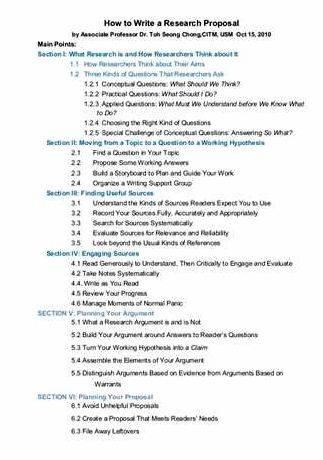
Your Research Interests Plans
- Developing your Research Statement describes the purposes of a research statement, discusses how to tailor your statement for different job openings, and offers general advice for writing your research statement.
- How to Write an Effective Research Statement, (PowerPoint 197kB Jul6 06) from the Career Services office at the University of Pennsylvania, is a powerpoint presentation summarizing the purpose of a research statement and describing how to make both the content and the format effective.
- Developing a Research Statement (PowerPoint 69kB Aug21 06) is a presentation by Armand Tanguay, Jr. at the University of Southern California, summarizing the key elements of a research statement.
- The Academic Job Search Handbook, by Mary Morris Heiberger and Julia Miller Vick, has several examples of descriptions of research interests.
Letters of Reference
- Getting Great Letters of Recommendation: Rick Reis describes what you can do to get the strongest letters of recommendation possible, in this article from the Chronicle of Higher Education.
- Preparing Application Materials: (Microsoft Word 23kB Oct18 05) This is an excerpt from the academic job search resource guide, by the Career Advising and Planning Services at the University of Chicago. It includes information on preparing a c.v. and cover letters, and also on getting letters of reference.
- The Academic Pyramid Club: In this article, published by the Chronicle of Higher Education, James Lang describes several simple things you can do to make it easier for your references to write you strong letters of reference.
Writing a Strong Cover Letter
- The Basics of Cover Letter Writing: In this article, published in the Chronicle of Higher Education, Rick Reis shows an example of a tailor-written cover letter and analyzes what the author does right.
- How to Write Appealing Cover Letters: In this column from the Chronicle of Higher Education, Mary Morris Heiberger and Julia Miller Vick describe what should be in your cover letter, and give three example letters, each with strengths and weaknesses.
- The Importance of Cover Letters in a Community College Job Search. In this article, published in the Chronicle of Higher Education, Dana Zimbleman explains that the cover letter is the most important part of an application for a job at a community college, and describes how to write a letter articulating why you are the perfect candidate for the job.
- How to Make Your Application Stand Out. In this article, published in the Chronicle of Higher Education, Rob Jenkins gives sound advice on making sure your application is on time and complete, and also describes what should go in your letter of application. The advice about the content of the letter is geared toward two-year college faculty emphasizing teaching experience and de-emphasizing research but is otherwise appropriate for most applicants.
- Preparing Application Materials: (Microsoft Word 23kB Oct18 05) This is an excerpt from the academic job search resource guide, by the Career Advising and Planning Services at the University of Chicago. It includes information on preparing a c.v. and cover letters, and also on getting letters of reference.
- The Curriculum Vitae and Letter of Application: (Acrobat (PDF) 196kB Oct18 05) This handout, also from the Career Advising and Planning Services at the University of Chicago, examines the c.v. and cover letter in detail, and shows a few examples of each from a variety of disciplines.
Tips from Early Career Geoscience Faculty Workshop Alums
- In addition to looking in the ads, talk to many colleagues. They may know of a position that is open or that will open soon. Look early and often to see what the trend in your field is.
- I am currently in a job that I never expected to get. I applied only because one of the faculty encouraged me to, even though it was my dream job. I have heard a number of people say they weren't going to apply for a job because they wouldn't get interviewed. My advice- apply for any jobs that look like they would fit you- you never know!
- Don't apply for a job that you aren't interested in taking (and if you're part of a dual career couple, in a place where you both don't have real opportunities).
- For the job search, don't give up. You only need one offer to make it worthwhile. Ask friends/colleagues/people you know who have gotten jobs and ask them to send you copies of their letter of application, teaching and research statements, etc. so you get some ideas for your own application.
- Talk to as many people as possible from different universities. I found that the advice I got from faculty where I was [studying was] different from what other schools were looking for. First, look for advice from folks at universities similar to where you will be applying. Second, do a lot of research on the university ahead of time and find out what they are really looking for, not what their announcement says they are looking for. They are not always the same.
Provenance: GSA
Reuse: If you wish to use this item outside this site in ways that exceed fair use (see fairuse.stanford.edu/) you must seek permission from its creator.
GSA supports On the Cutting Edge
The mission of The Geological Society of America is to advance geoscience research and discovery, service to society, stewardship of Earth, and the geosciences profession. We support geoscience education at every level. Join us at geosociety.org/
Provenance: NAGT
Reuse: This item is offered under a Creative Commons Attribution-NonCommercial-ShareAlike license creativecommons.org/licenses/by-nc-sa/3.0/ You may reuse this item for non-commercial purposes as long as you provide attribution and offer any derivative works under a similar license.
Value this site? Help us ensure its future.
The On the Cutting Edge website and workshop program are supported by the National Association of Geoscience Teachers (NAGT). Join today and your membership will help ensure that this site can continue to serve geoscience educators. Join NAGT today
Provenance: NAGT
Reuse: This item is offered under a Creative Commons Attribution-NonCommercial-ShareAlike license creativecommons.org/licenses/by-nc-sa/3.0/ You may reuse this item for non-commercial purposes as long as you provide attribution and offer any derivative works under a similar license.
Your NAGT membership helps make this site possible. Thank you!
The On the Cutting Edge website and workshop program are supported by the National Association of Geoscience Teachers (NAGT). Your membership is helping to ensure that this site can continue to serve geoscience educators.


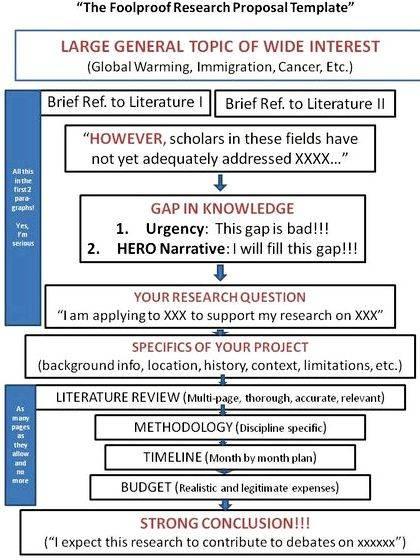
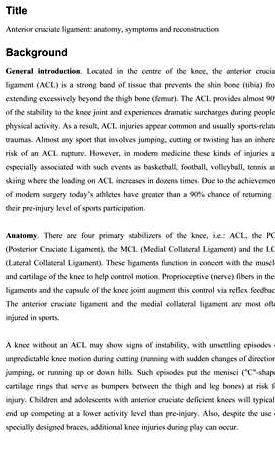


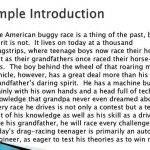 Academic writing introduction thesis paper
Academic writing introduction thesis paper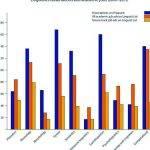 Non academic jobs phd philosophy dissertation
Non academic jobs phd philosophy dissertation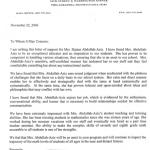 Academic reference sample phd dissertations
Academic reference sample phd dissertations Non academic jobs history phd dissertations
Non academic jobs history phd dissertations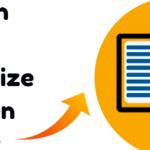 Pte academic tips writing an article
Pte academic tips writing an article






